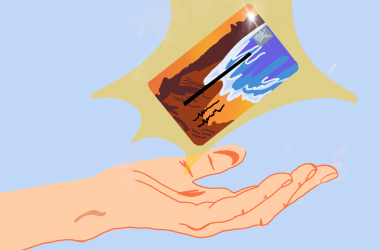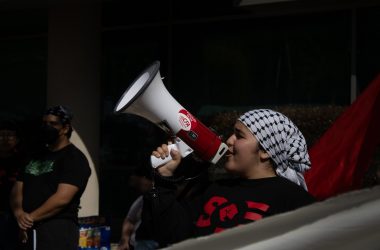What did you know about Nigeria before Christmas Day last year? Its sleazy online scams that make it hard to buy, sell or send anything to Nigeria?
Maybe, it’s the oil that bolsters the country’s economy while contributing heavily to the pumps at your local gas station?
If options one and two do not apply to your prior knowledge of this West African country, then Umar Farouk Abdulmutallab definitely will shape the way you think about Nigeria.
Abdulmutallab is the Nigerian man who tried to detonate a bomb on his Dec. 25-flight into Detroit. Thankfully, he had problems setting the bomb off in his underpants and passengers were able to subdue him before any serious harm could be done.
His bombing attempt not only brought up questions of security but questions about his country. Americans have heard of unorthodox events in Nigeria, but never have they heard of terrorism directed toward America. There, my friends, is where the problem truly lies.
Terrorism has resided in the cities and streets of Nigeria almost since the country gained its independence in 1960. The United States chose to ignore these threats.
While Abdulmutallab’s actions are not a true representation of the Islamic culture in Nigeria, extremists have continuously been a problem. Just like al-Qaida but weaker, there have been many terrorist groups that have come to power in Nigeria.
For example, during the ’70s and ’80s, an extremist Islamic group, the Maitatsine, gained power in Nigeria. It preached and practiced controversial values throughout the country. But it was short-lived only because the government became less fond of the group and exiled most of its leaders.
In Nigerian society, there are mainly two types of people, the lower class and the upper class. There are a low percentage of people in the middle class. Abdulmutallab is a northern Hausa Muslim. He is of the upper class. Other parts of the country have fewer natural resources, a lower literacy rate and an even bigger gap between the lower class and the upper class.
It is in this lower class that you find extremist views, people stuck in a country where corruption seems inevitable and economic progression seems unattainable. The scapegoats to this frustration are usually the small amount of Christians that reside in the North.
Religious wars and conflicts are very common in Nigeria. During the late ’90s and early 2000s — when some northern states had begun recognizing Sharia laws — Muslim extremists declared a religious cleansing. Periodically on Fridays after prayer they would set out to kill and humiliate the Christians in their towns.
In the upper class, the North is where you find most of the country’s politicians — people fond of sending their children outside the country for education. This is where Abdulmutallab comes in. He was one of those children.
Many Nigerians claim that suicide-bombing is not an African social norm. That may be true, but Nigeria, just like other Sub-Saharan nations, is vulnerable to extremist ideas from parts of the Middle East and the rest of the world.
Abdulmutallab was born during the time of the Maitatsine. He might have been enrolled in various international schools throughout his life, but that doesn’t mean he is not Nigerian. Every Nigerian knows of the terrorism that occurs within their country.
Being the man he was, Abdulmutallab was already alienated from his country. Saying that he learned violence from Yemen is a false statement. He should stand as a warning sign not just for more body scans in American and Nigerian airports, but for the terror that could possibly come from Africa.
Uzo Umeh is a sophomore pre-nursing major and the assistant opinions editor for the Daily 49er.



